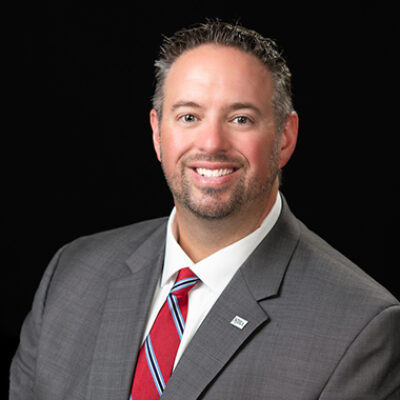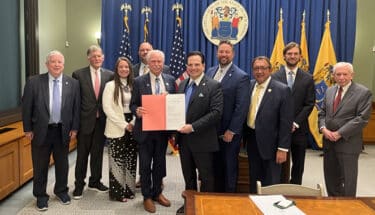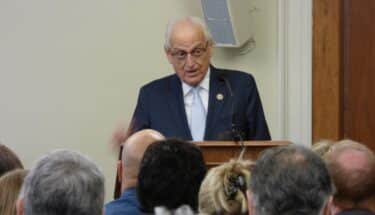At an Assembly committee meeting called to hear from witnesses about the science behind keeping people safe from COVID-19 at school and work, NJBIA testified that the business community is already putting best practices in place to protect workers and customers.
NJBIA Chief Government Affairs Officer Chrissy Buteas told the Assembly Science, Innovation and Technology Committee on Monday that various government and health organizations have issued COVID-19 guidelines, but requirements are not 100% clear for each industry.
The business community is consulting the guidance from the U.S. Occupational Health & Safety Administration (OSHA), the World Health Organization (WHO), the Centers for Disease Control and Prevention (CDC), the State of New Jersey and others in order to reopen safely and ensure a strong economic recovery, she said.
At the onset of the coronavirus pandemic, NJBIA created the New Jersey Business Coalition, which has over 100 association and industry participants throughout the state. Best practice documents were submitted to Governor Murphy and the Legislature by various industries in vertical sectors to help ensure employees and clients would be safe. NJBIA also launched a healthy business certification course, and those classes have been booked at full capacity throughout the summer, she said.
New Jersey businesses are taking the transmission of COVID-19 seriously and following the proper precautions using the most up-to-date scientific guidance, Buteas said, noting workers who are confident their employers are providing a safe and healthy workplace are more likely to return.
“It’s important to note that since New Jersey has lifted stay-at-home orders, many of the new COVID-19 cases reported have been linked back to house parties or social gatherings, not businesses or places of employment,” Buteas said.
Today, New Jersey has low rates of COVID-19 transmission compared to other states, but its unemployment rate is the second highest in the nation at 16.6%, Buteas said. Over 30% of New Jersey’s workforce has applied for unemployment insurance benefits since March, she said.
Buteas urged policymakers to be mindful of the indirect and induced effects of the pandemic, not just the danger of the virus itself.
“We know that mental health and suicides are increasing,” Buteas said. “Food insecurity is becoming more prevalent. Domestic violence cases and overdoses are also increasing. Employers, employees and government officials should be cognizant of this impact, as well as many services have been shut down or limited.”
Buteas recapped for the committee the ways businesses are modifying work environments and changing policies to provide additional protection for workers and clients. These include:
- Social Distancing – Limiting in-person meetings when possible, modifying workplace layouts, creating rules for usage or removal of communal spaces, installing barriers, limiting employee travel, modifying entryways, and implementing staggered schedules.
- Enhanced Cleaning and Hygiene Practices – Handwashing, frequently cleaning of high-touch surfaces, improving ventilation, conducting business in a different manner (such as the use of drive-through windows), hiring outside cleaning services, wearing personal protective equipment (PPE) and conducting workplace infectious disease audits.
- Health Risk Screenings for Employees and Clients – Taking temperatures and using screening questionnaires such as the Workplace Infectious Disease Employee & Visitor Self-Certification Form.
- Guidelines for Symptomatic or Infected Employees – Providing clear communication and guidelines for employees who need to isolate before returning to work. In some cases, this includes creating flexible leave policies.
- Exposure Risk and Job Duties – Being aware of exposure risk associated with job duties and employees with specific health histories who should be considered for job accommodations or additional protective measures, such as PPE.
The state is also asking businesses and employees to participate in the One Jersey Pledge, which includes many of the CDC guidelines to stop the spread of COVID-19 and help the economy recover.
Also during the meeting, the Assembly Science, Innovation and Technology Committee considered four bills, which were all released out of committee with NJBIA supporting A-850, A-1070, and A1625. They are:
- A-850 (Chiaravalloti / Karabinchak / Reynolds-Jackson) – Establishes “Community Broadband Study Commission”;
- A-1070 (Jasey) – Requires Secretary of Higher Education to develop guidance for institutions of higher education to identify cultural barriers in recruitment and retention of underrepresented students for science, technology, engineering and mathematics (STEM) programs;
- A-1625 (Lampitt / Jasey / Carter) – Directs DOE to develop outreach program to encourage young women and minorities to pursue post-secondary degrees and careers in STEM; and
- A-2349 (Moen) – The “New Jersey Social Innovation Act,” establishes social innovation loan pilot program and study commission within EDA.







